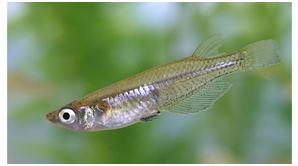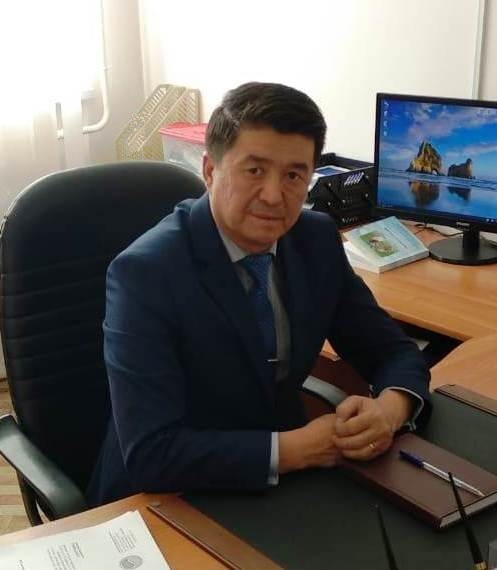
Scientists of the subsidiary organization of the "National Agrarian Science and Educational Center" JSC - "Fisheries Research and Production Center" LLP held online consultation on the topic "Scientific and legal aspects of LCFF (lake-commodity fish farming) in Northern Kazakhstan." The speakers were Shutkarayev Azis Vasilyevich, director of the Northern branch, Fefelov Viktor Vladimirovich, head of the laboratory.

The speakers touched upon such important issues as the preparation of reservoirs for lake-based commercial fish farming, how to increase the efficiency of stocking, which is more profitable than annual or perennial cultivation. One of the common questions was: where to start? where to go to organize LCFF? Speaker Shutkarayev A.V. spoke about the legal aspects in the field of commodity cultivation.
In the territory of Northern Kazakhstan, the fishing industry is currently developing mainly along an extensive path, as a result of which a significant share in catches is made by native species, in particular the most common gold and silver crucian carp. Indigenous fish species account for more than 65% of the total fish catch in the region. Another about 10% of the annual catch falls on the low-value species of fish (bream).
There are many fishery reservoirs in our region where commodity cultivation of carp, whitefish, pike and other valuable fish species can be carried out. Fish farms require significantly higher costs compared to traditional fisheries, in addition to the costs of reclamation work, the costs of purchasing planting material at fish nurseries, and in some cases for growing fish larvae to juveniles or young animals, are added here. However, it should be noted that the profitability from rationally organized farms is much higher than traditional fishing. Fish farms that grow valuable fish species up to the cash canopy, depending on the growing period, can be divided into farms with annual cultivation and with long-term cultivation.
One-year fish farms are based on the cultivation of commercial Coregonus peled and other whitefish. These farms most successfully function in brackish water bodies, because of the high mineralization in the water bodies there is no native ichthyofauna, fewer fish enemies and parasites, and they are also more productive in terms of food supply.
Fish farms with perennial cultivation are based on the cultivation of a greater variety of valuable fish species. When introducing planting material into the reservoir, it is necessary to take into account: the capabilities of the reservoir in the feed base, food addictions of fish in order to avoid competition, the suitability of the hydrological and hydrochemical regime of the reservoir for the habitat of a species.
Currently, there are already a number of officially registered and operating lake-commodity fish farms specializing in commercial cultivation of whitefish and carp. For example, in 2019, in the North Kazakhstan region, about 300 tons of whitefish and carp were produced on existing LCFF.
Many users on leased reservoirs are essentially engaged in fish farming, but do not receive the status of a fish farm, for various reasons.
At the present stage, the development of commercial fish farming in the northern region of Kazakhstan should consist of several main areas:
- Currently, the main objects of commodity cultivation in Northern Kazakhstan are carp and whitefish species of fish. This direction in fish farming at this stage in the development of fisheries should not be changed. Of whitefish, priority for commodity production should be the species with the fastest growth rate and high gastronomic qualities, peled and whitefish, replacing less valuable coregonus albula ladogensis;
- one of the deep-water fresh lakes of Northern Kazakhstan needs to be assigned the status of a “uterine reservoir” with the formation of a powerful uterine stock of peled and whitefish, in order to collect caviar for the reproduction of these species. The use of coregonus albula ladogensis, as a species with a low growth rate, should be excluded from fish farming practice;
- as additional objects of industrial fish farming, in our opinion, should be cultivated in small amounts of zander, burbot, pike. These fish must be released into natural reservoirs as biological reclamators. They will reduce the number of low-value weed fish in lakes, and if pike are a thicket predator most effective near the coast, then pike perch is in the open part of the lake. Both of these species are active in the warm season, and burbot - the cold-loving species begins to feed on the onset of cold weather. Thus, throughout the year, unwanted ichthyofauna will be under the pressure of predators;
- as a biological ameliorator, in the fight against excessive overgrowing of water bodies by aquatic vegetation, it is necessary to instill herbivorous fish species, in particular grass carp. This type of fish, in addition to providing significant assistance in the fight against aquatic vegetation, will increase the attractiveness of water bodies for lovers of sport fishing;
- to obtain the required amount of planting material for both main and additional fish species, already existing reproductive complex enterprises (Petropavlovskiy, Zerendinskiy and Verkhnetobolskiy fish farms) should be used, these enterprises need to be modernized, since high-quality planting material in the required quantity can only be obtained with subject to the application of the latest technology;
- it is necessary to introduce “lake-commodity fisheries” more widely in the region as the most progressive form of fish farming.

The legal aspects of LCFF primarily include legislative acts, the norms of which govern relations in the use of reservoirs for the commercial rearing of fish and other aquatic animals, as well as the activities of fish farms. The main legislative acts include the Water, Environmental, Administrative and Tax Codes, as well as Laws on the agro-industrial complex and the protection, reproduction and use of the animal world.
In addition to the listed legislative acts, the activity of lake-commodity fish farms is regulated by a number of regulatory legal acts that are created in order to implement the requirements (articles) of the above legislative acts and are formed in the form of Rules, Regulations, Instructions and other forms of legal acts.
In particular, the Order of acting Minister of Ecology, Geology and Natural Resources of the Republic of Kazakhstan dated January 31, 2020 N. 27 “On approval of the Rules for the transfer of agricultural reservoirs and (or) sections assigned for commercial fishing into agricultural reservoirs and (or) sections for fish farming ( aquaculture) ";
order of the acting Minister of Agriculture of the Republic of Kazakhstan dated August 15, 2017 N. 336 “On approval of the criteria for classifying fishery reservoirs and (or) their sections as reservoirs and (or) sections for commercial fishing, amateur (sport) fishing, lacustrine-fish farming, and hatchery fish farming farms and methods for their determination ”;
Order of the Deputy Prime Minister of the Republic of Kazakhstan - Minister of Agriculture of the Republic of Kazakhstan dated August 15, 2017 No. 337 “On approval of the Rules for re-reassignment of hunting grounds and fishery reservoirs and (or) plots and qualification requirements for persons for whom they were previously assigned” ;
Order of the Deputy Prime Minister of the Republic of Kazakhstan - Ministry of Agriculture of the Republic of Kazakhstan dated July 8, 2016 N. 304 “On approval of the form of a certificate of the origin of the catch”;
Order of acting Minister of Agriculture of the Republic of Kazakhstan dated August 9, 2017 N. 324 “On approval of the Rules for fish farming in fishery ponds";
Order of the Ministry of Agriculture of the Republic of Kazakhstan dated October 14, 2015 N. 18-05 / 928 “On approval of the Rules for the work on stocking reservoirs, fishery reclamation of water bodies”;
Order of the Ministry of Agriculture of the Republic of Kazakhstan dated March 31, 2015 N. 18-04 / 287 “On approval of the standard form of a development plan for hunting and fishing entities”.
Order of the Ministry of Agriculture of the Republic of Kazakhstan dated March 31, 2015 N. 18-05 / 290 “On Approval of the Rules for Fisheries Management” and etc.
We would like to note that all the speeches of the speakers of "Fisheries Research and Production Center" LLP remain on the platforms on Instagram, Facebook, and also on the YouTube channel of the "Fisheries Research and Production Center" LLP.

